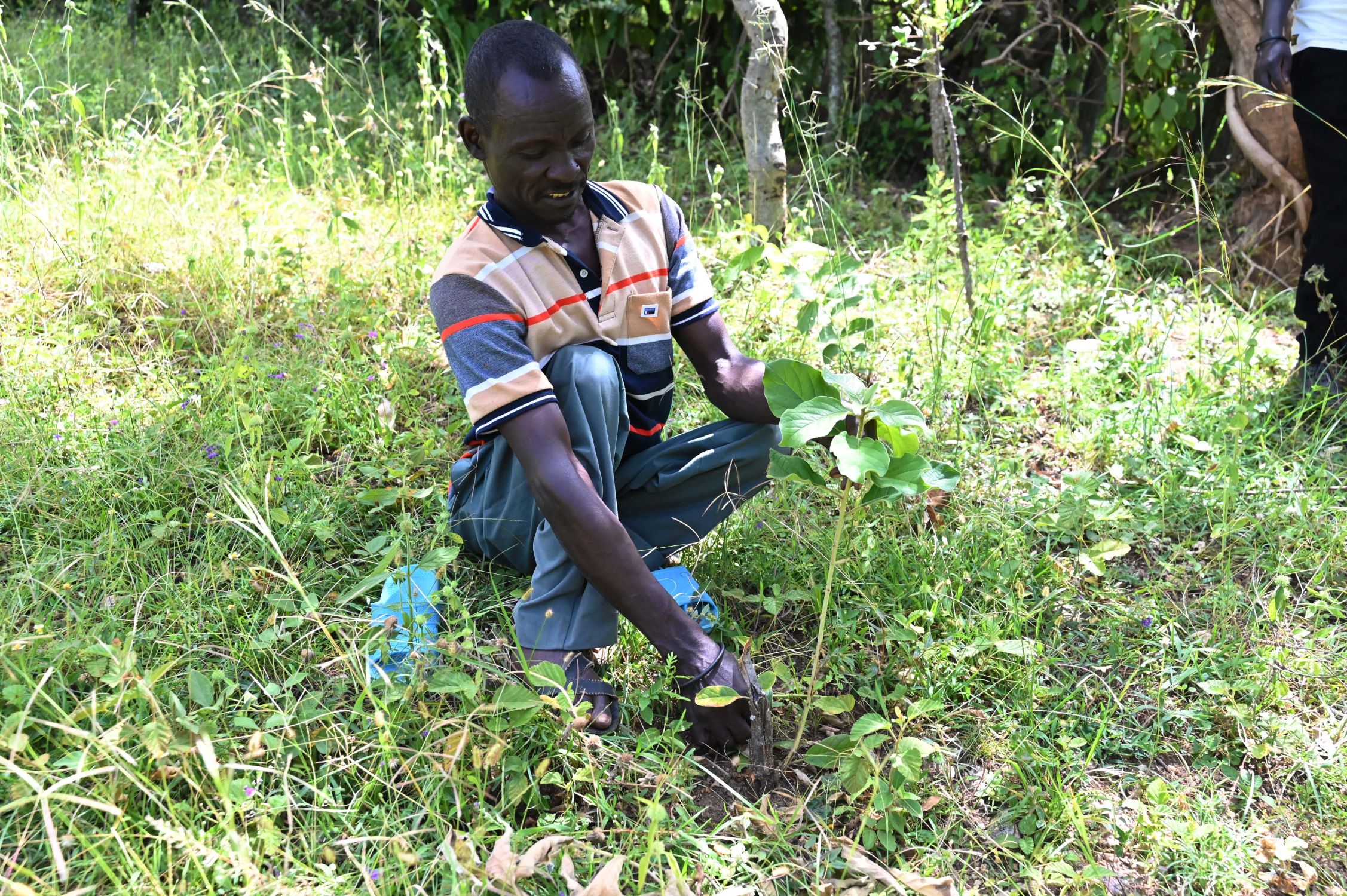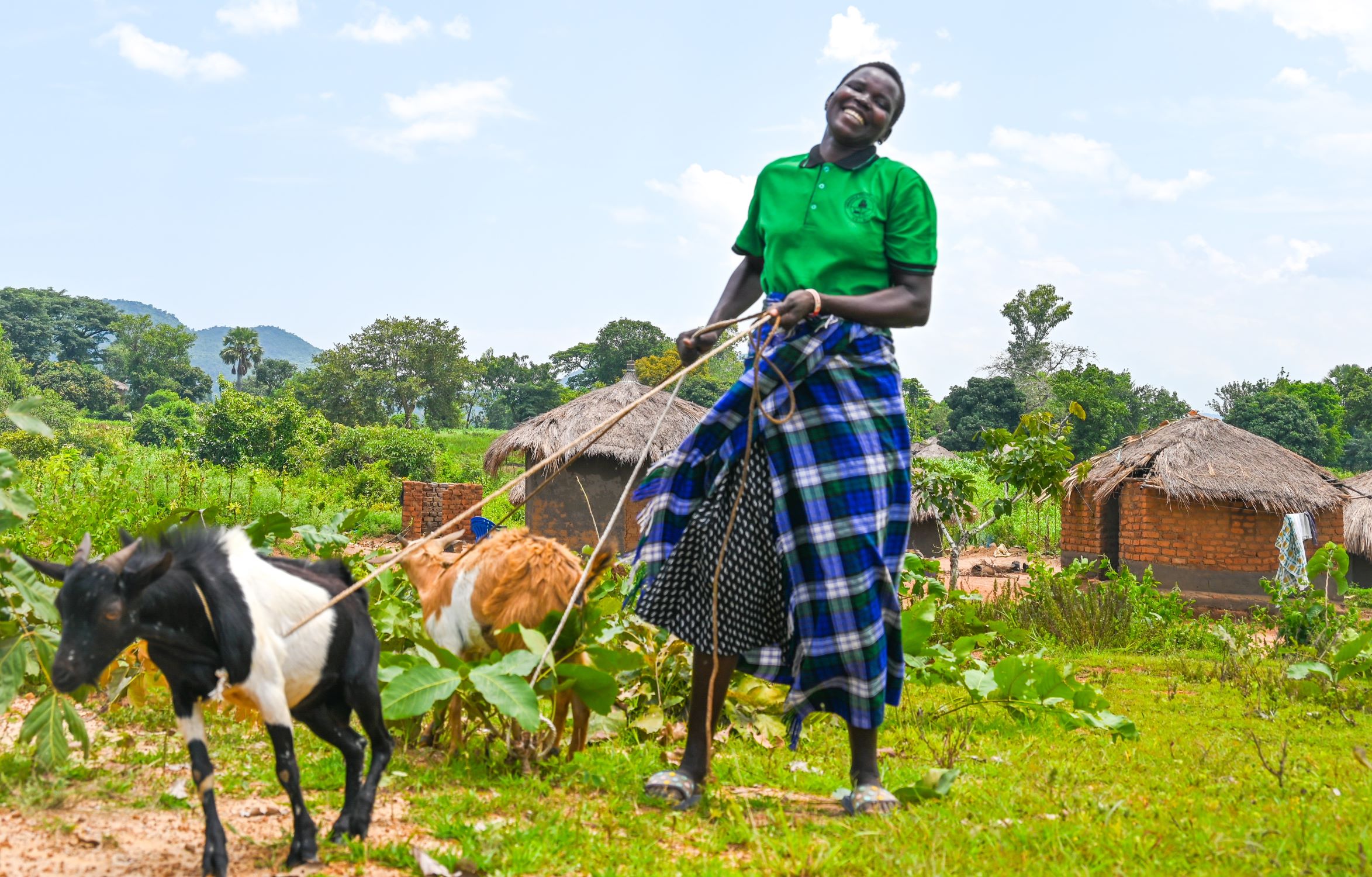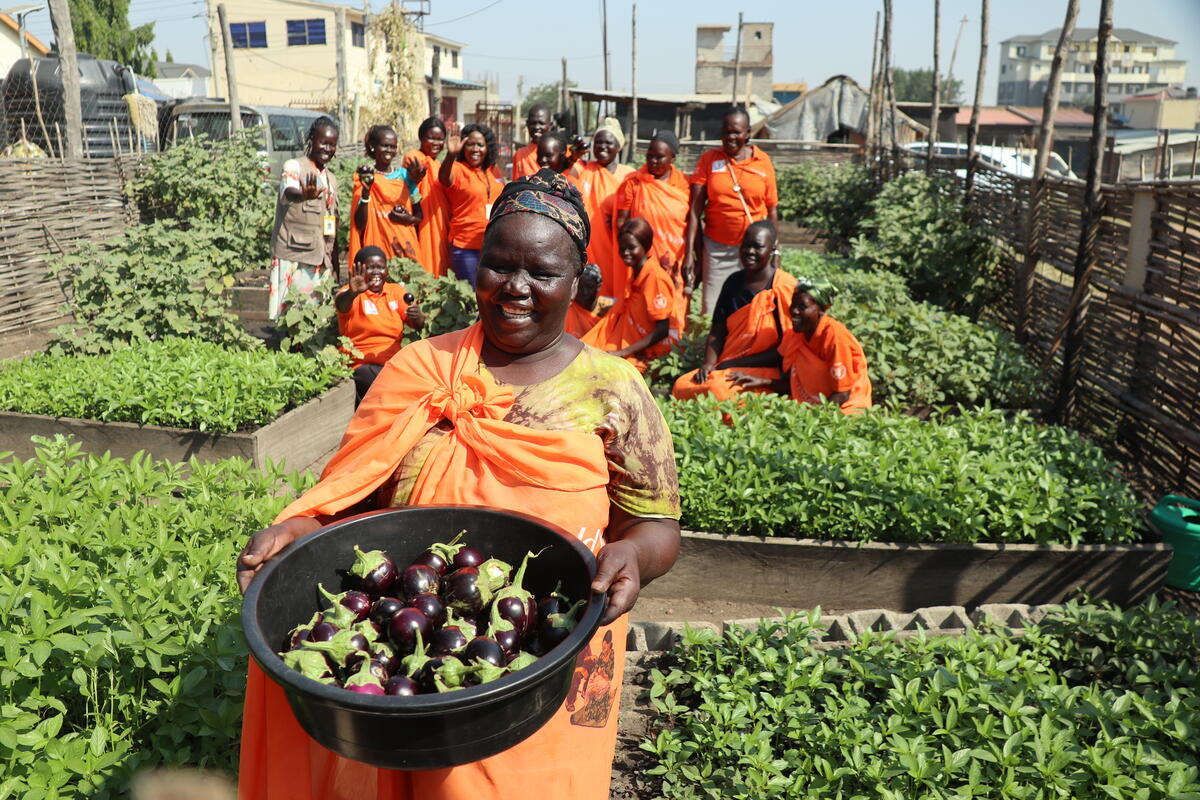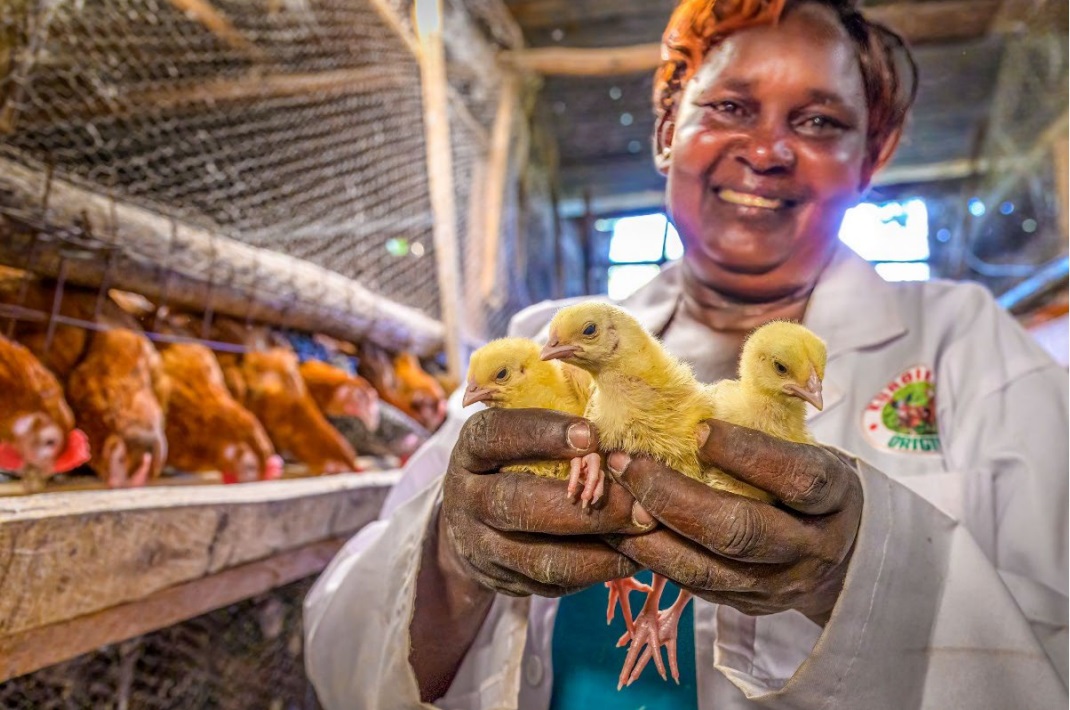
A community transformed
Damaris’ despair turned to joy. Now her whole community is flourishing.
Damaris’s house is now a place of peace and productivity. On her farm, she has everything she needs. “I only buy salt,” she proclaims with a radiant smile. In practicing World Vision’s Empowered Worldview, Damaris has learned the secret to living a full life. And she isn’t keeping it to herself. She’s sharing it with others.
A community in need
Joy was absent when Damaris moved from Kenya’s bustling capital, Nairobi, to a village in 1999, making the sad journey with her 12-year-old son, Edwin. “I came back here to bury my husband,” she says. Japhet, a military man, had died. “I never found out why.”
Damaris took her husband’s body back to his home village, to be buried in September 1999. She decided to stay there, living with her son on the small plot of land Japhet had left. Then, more heartbreak.
Edwin died in October. “He was so close to his father,” says Damaris. “It was as if the shock killed him.”
Damaris was left with nothing but a small plot of land and an empty heart.
She wasn’t alone in her misery. The community was full of grief. Obadiah Kisang, of World Vision, remembers the challenges before they started Child Sponsorship there in 2003. “Children faced many risks, which included domestic violence, rape, school dropouts, early pregnancy, drug abuse, and alcoholism.” Drinkable water and jobs were scarce, school enrolment was low and HIV was prevalent. "There were many child-headed households as a result of losing parents to the disease,” Obadiah says. “Priorities were water, HIV and AIDS, education, and livelihoods.”
World Vision worked with local leaders to encourage support groups, creating a way forward for people living with HIV. Children needed to be in school. World Vision provided school fees and built shelters for children with dilapidated homes. The land was dry and barren. World Vision encouraged people to plant trees. In Damaris’ community, nearly 3,000 children are sponsored — one in every 10 kids. Government grants also supported the construction and rehabilitation of water points.
The beginning of change
Damaris built a small house and planted two mango trees in her yard, for shade, not even considering that they might bear fruit someday. Someday was too far away. Damaris lived day-to-day, working for a local politician. But she found no joy in her work. At the end of the day, she would come home, sad and lonely.
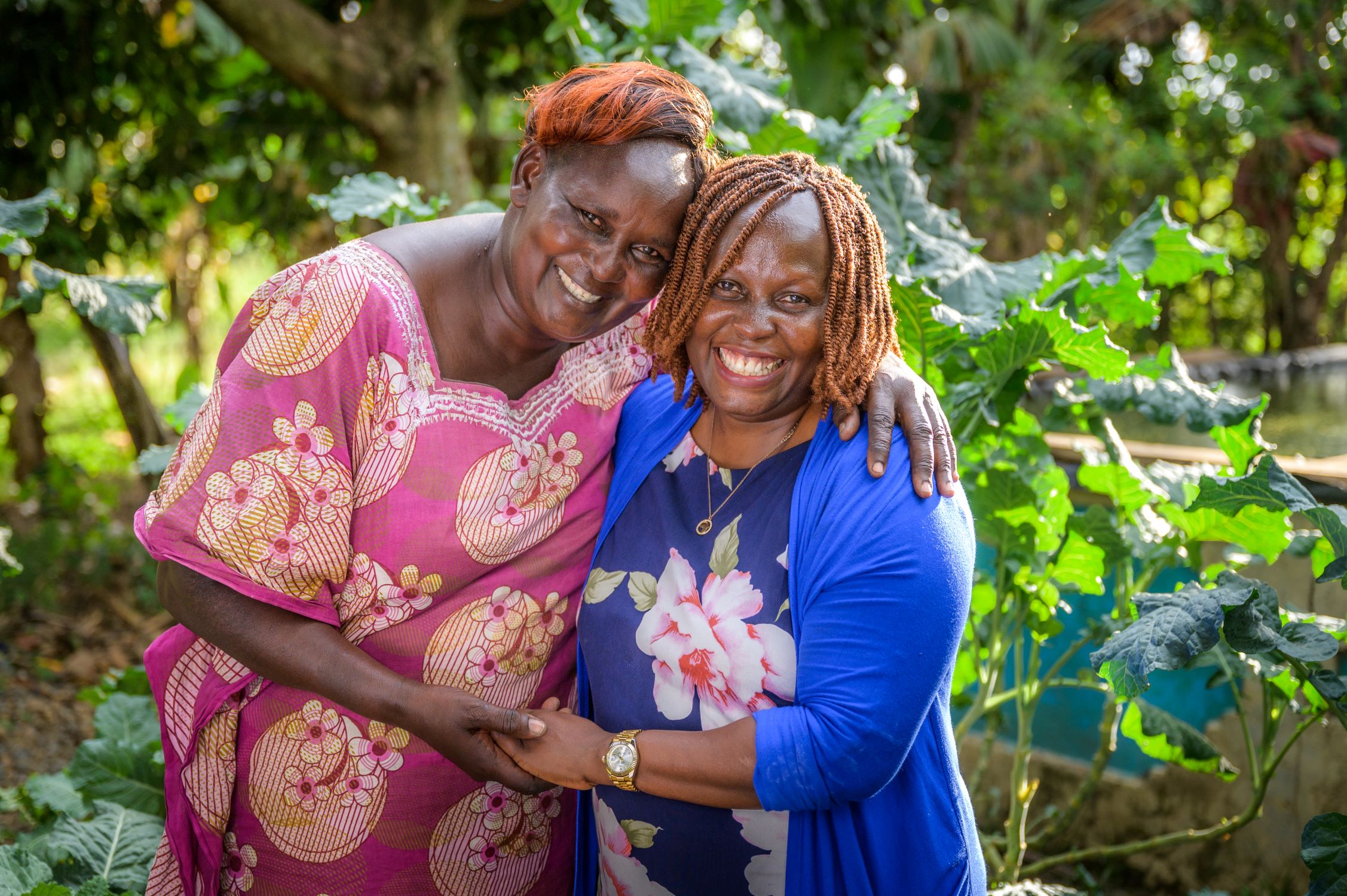
In 2016, World Vision’s Alice Yugi changed that. She was looking for potential candidates for the innovative programme Empowered Worldview. Developed in Kenya and Tanzania, the premise is simple. It reminds smallholder farmers of their inherent value, their place in the community, and helps them to see what they have to offer. For a week, trainers explained two things to a class filled with local leaders, youth, and smallholder farmers: that they are loved and that they should feel empowered to succeed rather than fail.
At a meeting called by the area chief, Samson, Damaris was chosen to represent the farmers. She wanted to refuse, she says, “but the chief said no.”
Alice saw something special in Damaris. “Women think differently. In modern farming, we want people to care. I could sense energy in her. And passion.”
Alice trained Damaris and 38 other community members in Empowered Worldview, tackling the lies that people had told themselves and each other for decades. “They believe they are destined to be poor,” says Alice, who grew up in the region. “Some of this has come as a result of what they have been told by their forefathers, the leaders.”
The Empowered Worldview curriculum answers practical questions, such as, “How do I cope? How do I take care of my farm?” But the discussions also change hearts. Alice witnessed “lightbulb moments.” She saw people realise that they have all the tools they need to succeed. On the last day of class, participants created an action plan that they promised to uphold. And to get every student started, she gave them three chicks.
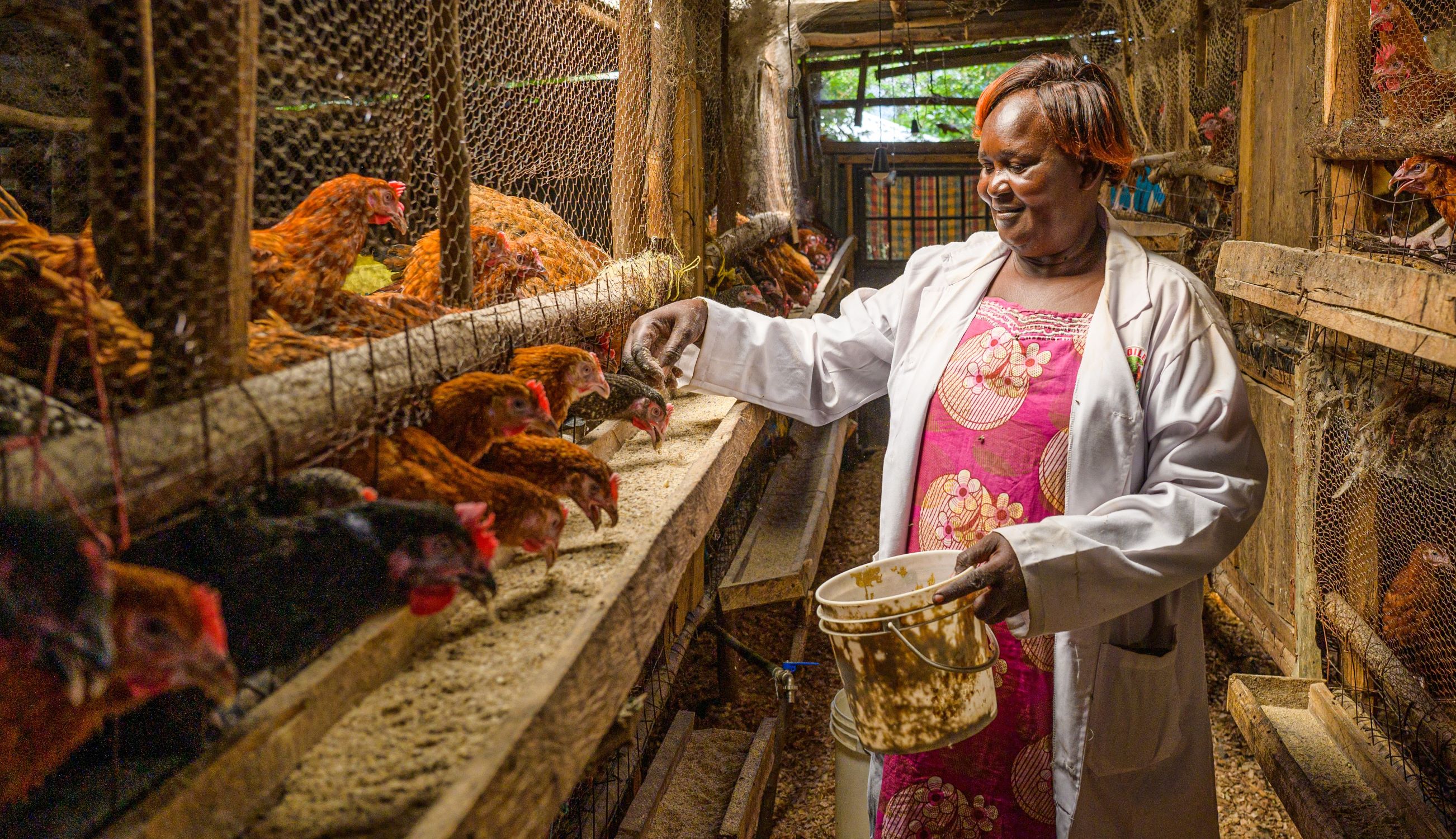
The ripple effect
Joy multiplied for Damaris, as did those baby chicks. “I used a mosquito net to fence them in. I put my three birds under the net,” she says. “They started laying." Three chicks turned into 30 chickens. “My farm was now growing,” she says.
Soon there were 100, then 600. She added fishponds, goats, and honeybees, and expanded the farm. “When I started enjoying the money, I started to see what Alice was saying,” Damaris recalls. She could do whatever she put her mind to.
Felix
Felix, 25, and Antonio, 28, visit Damaris to talk farming. “I had a miserable life,” says Felix. “After graduating I couldn’t get a job.”
Felix’s father died in 2004 and he was sent to an orphanage an hour away. Life there was difficult and could be violent.
When sponsorship came, Felix could move back home and live with his mother and siblings. He credits his sponsor with getting him through school, providing school uniforms, and writing encouraging letters. “He kept telling me to soldier on and never lose hope,” says Felix.
Felix’s mother spent her savings to put him through college but when he graduated all the jobs in his chosen profession, public health, were filled. He reached out to Damaris. Now he farms kale and spinach and raises chickens.
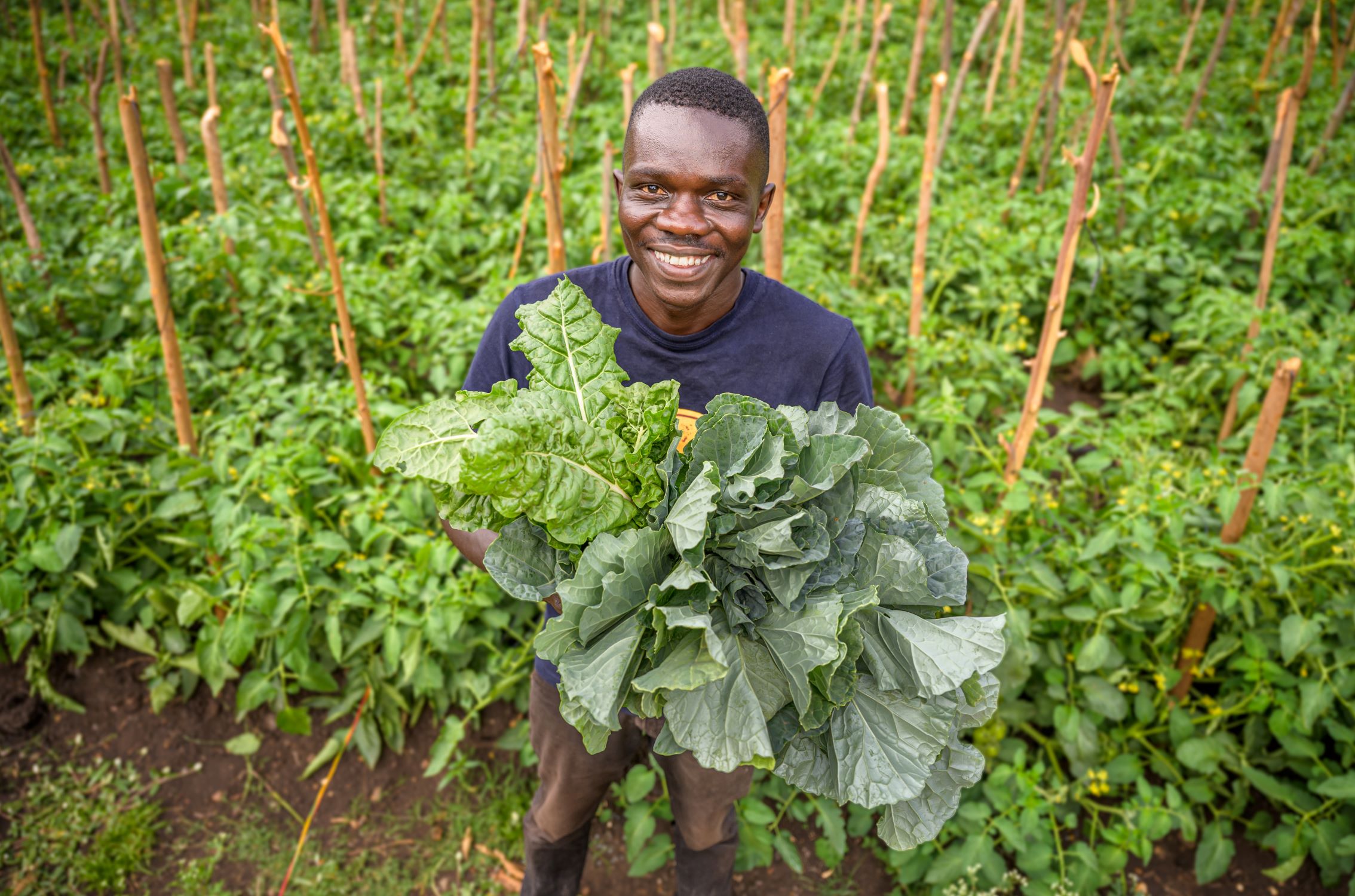
Antonio
Antonio was a teacher but couldn’t afford to raise a family on a teacher’s salary. “When I started with Tony, he had nothing," says Damaris. “I gave him a guinea fowl and three birds.” To see Antonio’s farm today is to witness how he turned nothing into everything.
He has a pond with nearly 3,000 fish, 15 cattle, four donkeys, numerous goats, guinea fowl, fantail doves, and a forest of eucalyptus that he could sell for 10 million Kenya shillings, or about US$80,000. But he won’t sell them. “I like them,” he says of his trees. It’s where he goes to meditate. He wakes up early every morning, as Damaris does, to pray and start the day while his wife and two children are still sleeping. “I am at peace. Peace with my soul. Peace with the environment.”
Both he and Felix are passing on their knowledge to young farmers. “This doesn’t just happen when you believe in yourself, but when others believe in you,” says Antonio.
Damaris beams at the two young men sitting under her mango trees. “These are my God-given sons. God has given me two instead of one,” she says.
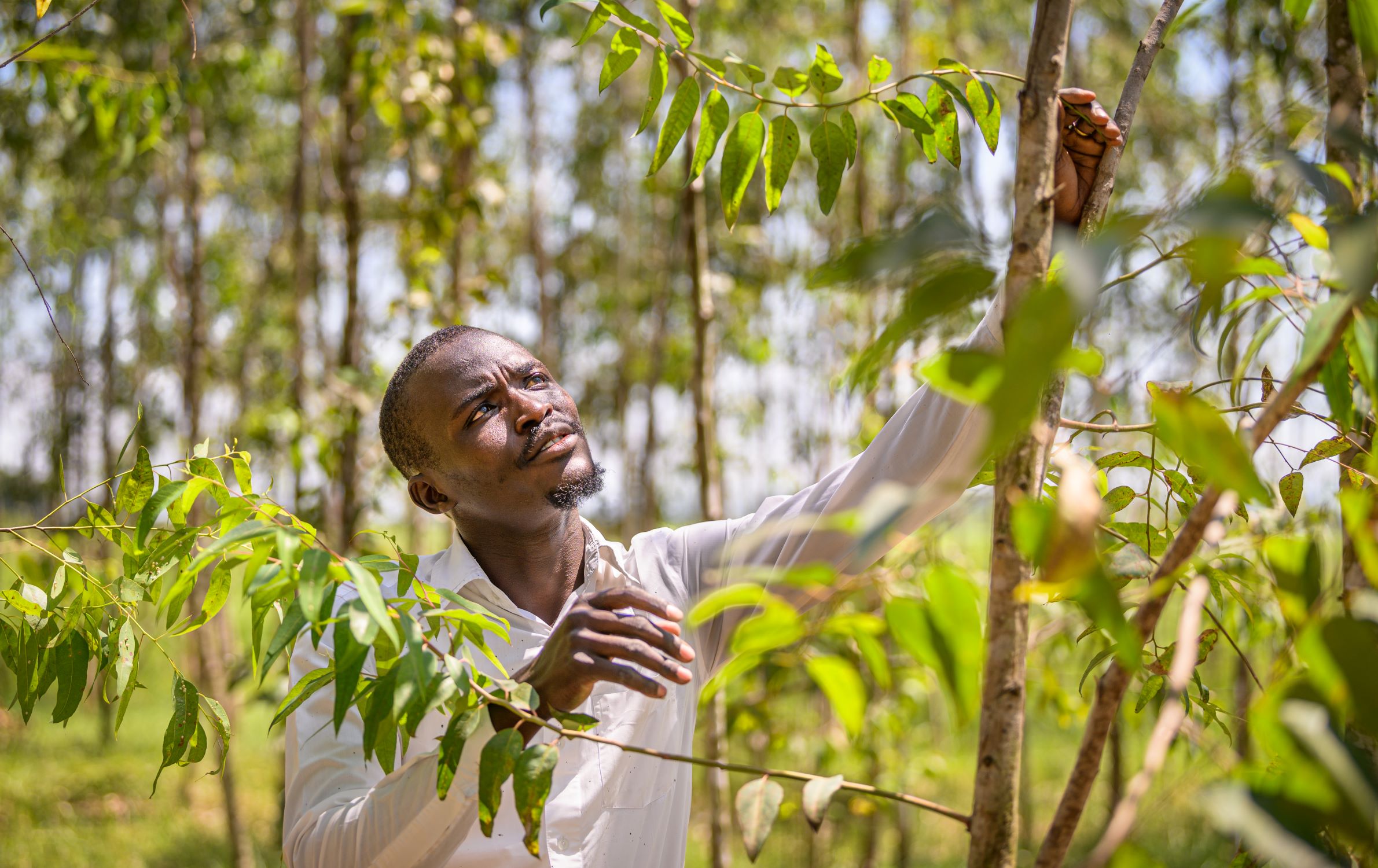
Phoebe
Phoebe, 17, brings tea for Felix and Antonio. She is living with Damaris, learning to farm. She dropped out of school when she became pregnant at age 12. “I was praying that I could do something that could transform my life and the lives of my sister and brothers,” says Phoebe. She was working as a maid when Damaris learned about her situation and came to help.
Not only is Damaris teaching Phoebe farming but she is also working with the government to get Phoebe an identification card, something she needs to start a bank account. Most of the 1 billion people around the world who lack identification are like Phoebe: female and poor. Damaris’ belief in Phoebe is giving her hope again. “I feel when I wake up in the morning, whatever I am doing will change my life tomorrow,” Phoebe says.
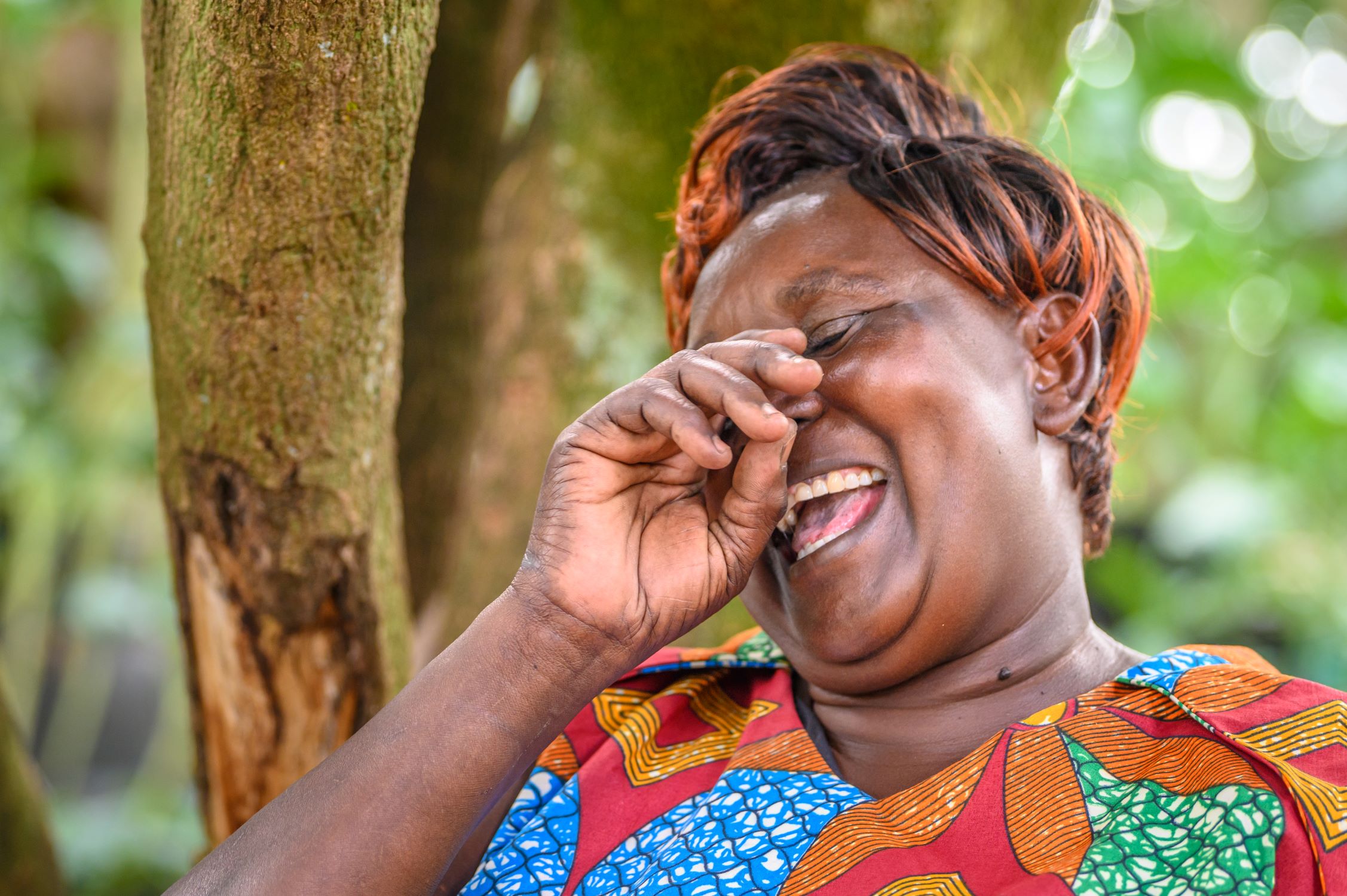
Empowered for success
Joy is renewed every morning at Damaris’s house, beginning at 3.30 am with prayer. She then tends the chickens. There are thousands to feed. “From three birds I have 2,200 birds,” she says. She feeds and waters the goats, singing to them. “When I sing to them, they listen,” she says. “They concentrate on the music and the milk flows.” The fish come next.
The ponds in the front contain hundreds of fish that need to be fed, and the pond in the back holds 5,000.
Before a late breakfast, she’ll water her vegetables — some in gardens she built herself, other crops surrounding the house. After breakfast, she’ll spend more time in the garden, feed the chickens and the goats again, and of course, pause to chat with the visitors who stop by to find out the secrets to her farming that she readily shares. To date, more than 500 farms have been established because of Damaris.
Samson
Samson, the chief who thought Damaris would make a good farmer, says he has seen the community change. “World Vision has been one of a kind compared to others,” he says. In two years, Samson will retire. He feels the community is ready for him to leave and for World Vision to move to a new community. “The much they have done will remain with us,” he says. “It’s sustainable.”
And as for Damaris? She reflects, “I know that God will lead me,” she says quietly. But an instant later, her exuberance is back, and she grins. “I’d like to raise pigs!”
This is Damaris: believing in others and living with joy.

